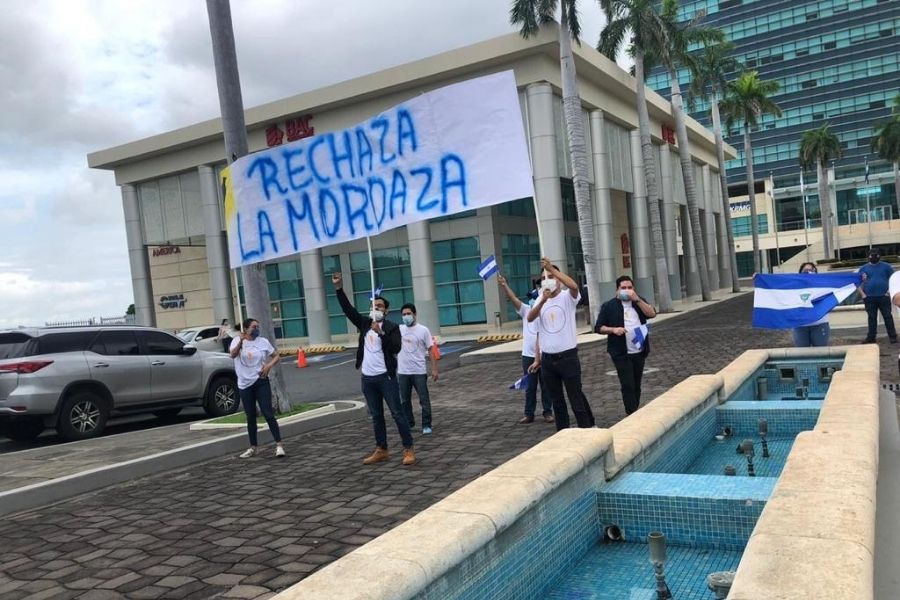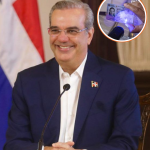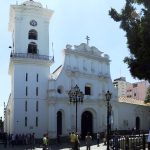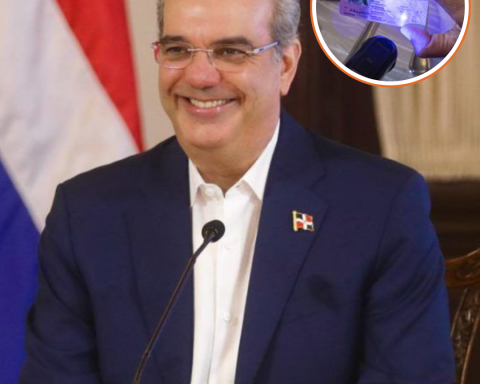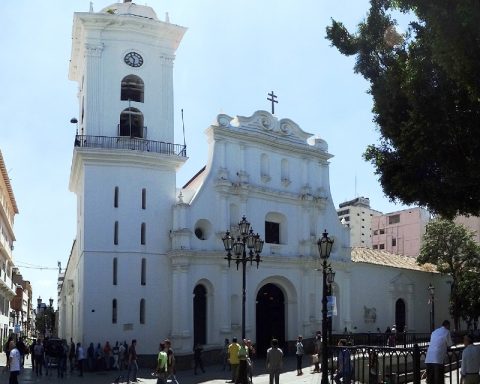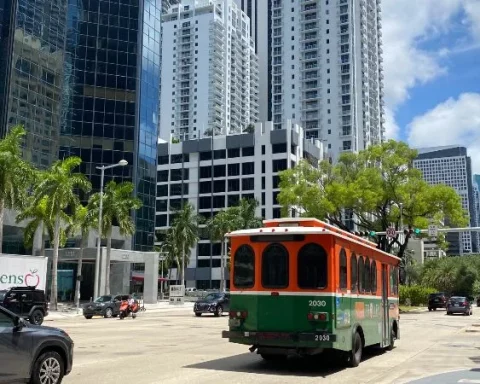One year after the Special Cybercrime Law or “Gag Law” came into effect –on December 30, 2020-, at least ten people “perceived as opponents”, including journalists, are being prosecuted under that legal figure, “Accused of spreading false news, under illegal arrests and arbitrary processes,” denounced the Human Rights Collective Nicaragua Never Again.
The Law is part of a package of laws considered repressive, together with Law 1040, Law for the Regulation of Foreign Agents; Law 1055, Law for the defense of the people’s rights to independence, sovereignty, and self-determination for peace; and Law 1060, Criminal Procedure Reform Law. They are laws considered as part of the legal framework of the regime to carry out new arrests, exacerbate repression, and violate human rights.
Gonzalo Carrión, a member of the Collective, explained that before the Ortega-controlled National Assembly approved the combo of abusive laws in 2020, the country was already suffering from a “systematic repression”, “a chain of abuses of power and serious violations of the human rights that we summarize as the commission of crimes against humanity, which until now remain in total impunity, ”he said.
After the social outbreak of 2018, hundreds of Nicaraguans were arrested in an attempt by the regime to quell the protests against them. With the approval of the “Gag Law” and the other laws that came later, the regime sought to give “some mask of legality, a cloak of legality to what, in fact, they have been doing,” said Carrión.
Since the initiative of the Gag Law was known -September 28, 2020-, independent journalists, analysts, opponents and human rights defenders warned that the regime would use it to silence uncomfortable voices, criminalize independent journalism and continue to violate the law to the expression freedoom.
Although the entire body of the Law -which establishes penalties of one to ten years- is questioned, Article 30, which penalizes the spread of false and / or misrepresented news, which causes alarm, fear, anxiety in the population, violates “The principle of legality, typicality and legal security,” warned the Collective, because the Law does not define what is false news and does not establish parameters to measure its possible impact on the population. This gives wide discretion to the police and legal institutions and the Prosecutor’s Office, which are controlled by the Executive.
For Carrión, no law is valid if the main purpose is to “hit more, oppress more of the brave Nicaraguan people who continue to resist, silence every voice that exercises the right of expression, related to the exercise of citizenship, the exercise of the right of participation. politics, the right to associate (…) ”, he said.
How has the Gag Law been applied?
The Public Ministry cited the Cybercrime Law in several of the interrogations to which dozens of independent journalists were subjected as part of the investigation into alleged money laundering against the Violeta Barrios de Chamorro Foundation, which the Prosecutor’s Office initiated in May 2021. Wilfredo Miranda was one of the journalists who denounced that they wanted to incriminate his work as violations of the Law.
During November, the Ortega regime unleashed a new wave of arrests, imprisoning 27 people, including members of opposition organizations or political parties, activists, analysts, ex-entrenched and former political prisoners. Of these, thirteen were accused of violating Law 1055 or the Sovereignty Law and the “Gag Law”.
However, the Collective pointed out that the Law has also been used against human rights defenders and independent specialists, as happened on September 8, 2021, when environmentalist Amaru Ruiz was accused by the Prosecutor’s Office of committing the crime of “propagation of false news, through information and communication technologies ”, after Ruiz denounced new murders against indigenous people in the country’s Caribbean.
In July, the Ministry of Health (Minsa) summoned independent doctors who questioned the state’s handling of the health emergency due to covid-19. The authorities told the doctors that there was a single entity to report on the coronavirus, including the numbers of infections and deaths -whose figures have been indicated as not very transparent by epidemiologists-, while they reminded them that the country had a Law that punished with jail the “fake news.”
This generated fear among the union and several specialists went into exile fearing unjust imprisonment. Others preferred to self-censor. The same has happened with various sources of information that fear being involved in legal proceedings, and therefore request that they be cited anonymously or under pseudonyms. Likewise, according to the Collective, due to the repressive escalation against journalism and the application of the Cybercrime Law, “at least 70 journalists were forcibly displaced out of the country” in 2021.
Murillo threatened journalists
Vice President Rosario Murillo accused independent journalists who warned about the risk of a covid-19 outbreak in July of publishing “false news” on health issues, with information from “false doctors and with false forecasts”, which could be punished with the “Gag Law”. The strongest outbreak of the pandemic occurred in August, but it was not officially recognized by the Ministry of Health.
“To the chachalacas who enjoy, enjoy doing harm on health issues, we say: ‘they couldn’t, nor will they’, calm down! Do you know why? To those chachalacos who enjoy alarming people, you know, because in life everything is paid for, and if we do harm, harm will come to us, ”Murillo continued. “Let us not expose ourselves to receive the consequences of our actions, let us do good so that good comes to all of us,” he said on July 7.
The strategy, through the combination of repressive laws, is to objectify those who defend freedom as the right of expression and that they are seen as “enemies,” Carrión said. However, he considers that the regime has not achieved its objective of silencing the citizenry, and its most forceful expression was the majority abstention in the voting centers on November 7, when Ortega and Murillo were reelected without political competition or minimum guarantees. democratic.
Despite everything, the population and independent journalism continue to report, the human rights defender said.
